I recently clipped a little factoid out of a periodical I subscribe to that I thought was interesting:
“Amazon says that the most highlighted Bible passage on Amazon’s Kindle e-reader is Philippians 4:6-7: Do not be anxious about anything, but in every situation, by prayer and petition, with thanksgiving, present your requests to God. And the peace of God, which transcends all understanding, will guard your hearts and your minds in Christ Jesus.”





